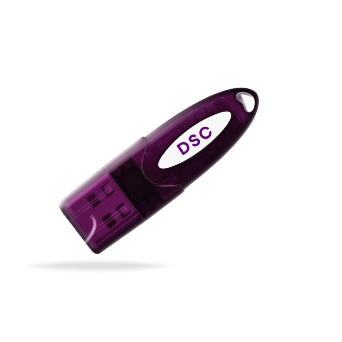17-Mar-2023
Difference Between Electronic and Digital Signature
In today's digital age, many people use the terms electronic signature and digital signature interchangeably, but they are not the same thing. While both terms are related to signing electronic documents, they have distinct differences that are important to understand. While several public and private organizations, professionals and self-employed entities are using digital signature & electronic signature for their signing purposes. Let us explore the main differences between electronic and digital signatures and the utilities attached to that particular mode of signature.
What is an Electronic Signature?
An electronic signature, or e-signature, is a method of signing a document in an electronic form. It is a broad term that encompasses any electronic symbol, sound, thumb impression or process that is attached to a digital document to indicate acceptance, agreement, or authorization. Examples of electronic signatures include typing your name into a signature field, checking a box to indicate agreement, or using a stylus or finger or thumb to sign a document on a touchscreen device.
Electronic signatures are widely used in a variety of industries, organizations and corporations including real estate, finance, healthcare, and legal services. They offer many benefits, such as streamlining the signing processes, convenience, and cost savings. However, they may not be suitable for transactions that require a higher level of security and authentication.
What is a Digital Signature?
A digital signature, on the other hand, is a specific type of electronic signature that uses encryption technology to ensure the authenticity and integrity of a digital document. It is a mathematical algorithm that is attached to a digital document to provide a unique identifier for the signer and to validate that the document has not been altered or tampered with since it was signed.
Digital signatures are typically used for transactions of data that usually need a higher level of cybersecurity and authentication, such as online banking, government contracts & e-tenders, and legal agreements/prospects. They are created using a public key infrastructure (PKI), which involves the use of public keys to verify the identity of the signer and ensure the authenticity and integrity of the document shared.
How Does a Digital Signature Work?
A digital signature works by using a public key algorithm to create a unique digital fingerprint of a document. The signer uses a private key to encrypt the document and attach the digital signature. The recipient can then use the signer's public key to validate the digital signature and ensure that the document has not been altered or tampered with since it was signed.
A digital signature is more secure and reliable than an electronic signature because it provides strong evidence of the signer's identity and the integrity of the document. It is also legally binding and admissible in court as per the Information Technology Act, 2000 Government of India.
What are Digital Certificates?
A digital certificate, also known as DSC (Digital Signature Certificate), is an electronic/digital tool that contains information about the identity of the signer and the public key used to validate the digital signature. It is issued by a licensed certificate authority (CA) after verifying the identity of the signer.
A digital certificate is required for creating a digital signature and provides an additional layer of cybersecurity and authentication. It is stored on a USB token and is used to validate the signer's identity when creating a digital signature.
Capricorn CA: A Licensed Certifying Authority In India
Capricorn CA is licensed to offer digital signature certificate DSC & other signing related solutions to individuals as well as organizations. Capricorn CA is authorized by the Controller of Certifying Authority CCA, Govt of India. One can obtain their DSC by applying on our portal online. After a complete verification, you will be able to download your certificate.
How Digital Signature Certificate Can Benefit You & Your Organization?
Digital signatures offer several advantages over electronic signatures, including:
Cybersecurity: Digital Signatures use encryption and decryption technology to add a double layer of cybersecurity to your essential documents/data. A set of private and public keys is used to encode & decode the data shared with the intended participants. Thus, it is more flexible in ensuring safety & security of the data.
Legally binding: Digital signatures are legally binding and admissible in court as evidence of the signer's intent and agreement according to the IT Act, 2000 Government of India. They are widely recognized as a valid form of electronic signature in most countries around the world.
Public Key Infrastructure (PKI): Digital signatures use a public key infrastructure (PKI) to provide a secure and reliable method of authentication. PKI involves the use of public key certificates to verify the identity of the signer and ensure the authenticity and integrity of the document.
Creation of Audit Trails: All the transactions performed in the data/records/documents are maintained in the audit trail. DSC would create an audit trail of your every activity to ensure a complete record of changes/alterations made.
Conclusion
Digital signatures are essential for ensuring safe signing processes and protecting sensitive personal information from cyber fraud, theft, or forgery. When electronic documents are signed using a DSC, the original information remains intact, ensuring trust between the parties involved. By utilizing digital signatures in your signing processes, you can ensure the complete cybersecurity of your personal data.


